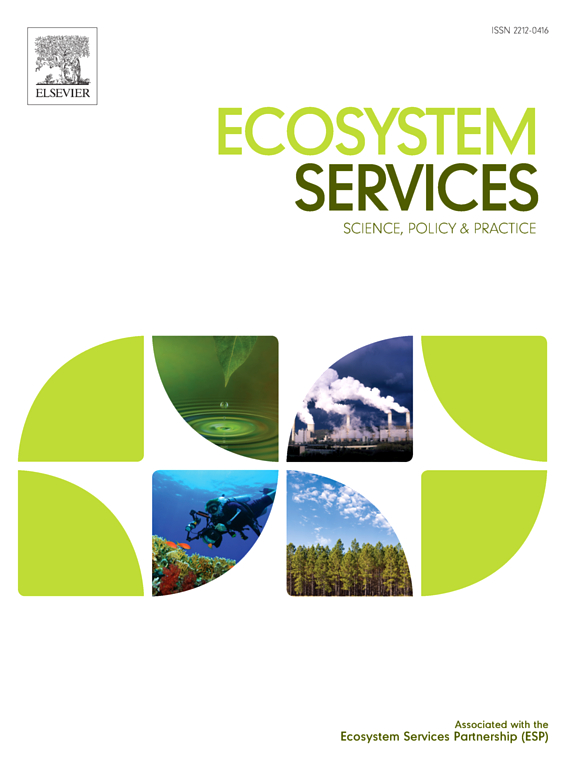The Baltic Sea is a heavily used marine area in Northern Europe delivering valuable services to the inhabitants of its surrounding countries. Understanding how the structure and functioning of marine ecosystems deliver ecosystem services is still limited. However, this information is increasingly needed for ecosystem accounting, marine spatial planning and managing natural resources sustainably. In this study we reviewed ecosystem services provided by marine natural capital, i.e. the elements in the environment that are essential for providing the services. Altogether 48 habitats belonging to 8 habitat groups, and 11 mobile species (i.e. fish and pinnipeds) were assessed using literature and expert knowledge in the Northern Baltic Sea. To our knowledge, this is the first time when all habitats are included in an ecosystem services assessment in the area. The results show that of all possible service linkages, 31–56% were identified for habitats (depending on the habitat group in question) and 28–51% of linkages could not be assessed because of the limited knowledge. For mobile species, 53% of all possible services linkages were recognized and 15% of linkages could not be assessed because of limited knowledge. The results demonstrate the importance of the marine habitats for delivering regulating services, particularly those mitigating harmful effects of human activities such as carbon and nutrient storages, and their importance to services that are yet to be discovered. The results also show that mobile species are particularly important for provisioning and cultural services. The current study supports on-going policies such as the Baltic Sea Action Plan and marine spatial planning by providing knowledge on ecosystem services that can be adopted into decision-making in the areas where the distribution and location of habitats and species are known. It also acts as a starting point for a more in-depth trade-offs analysis of different ecosystem services.


